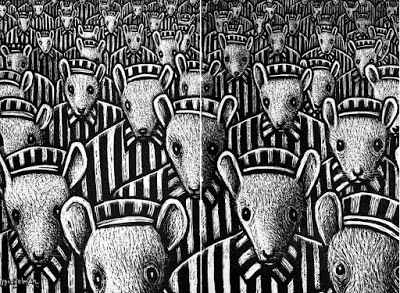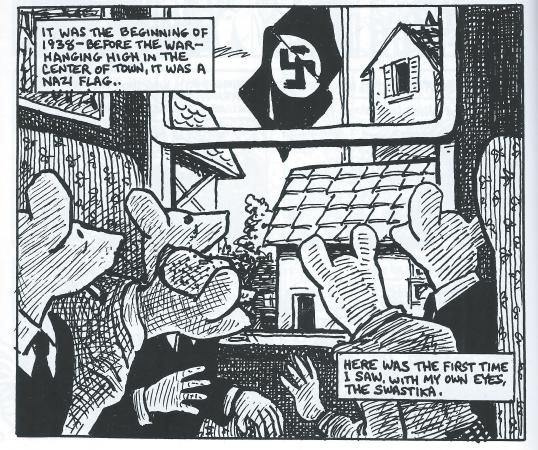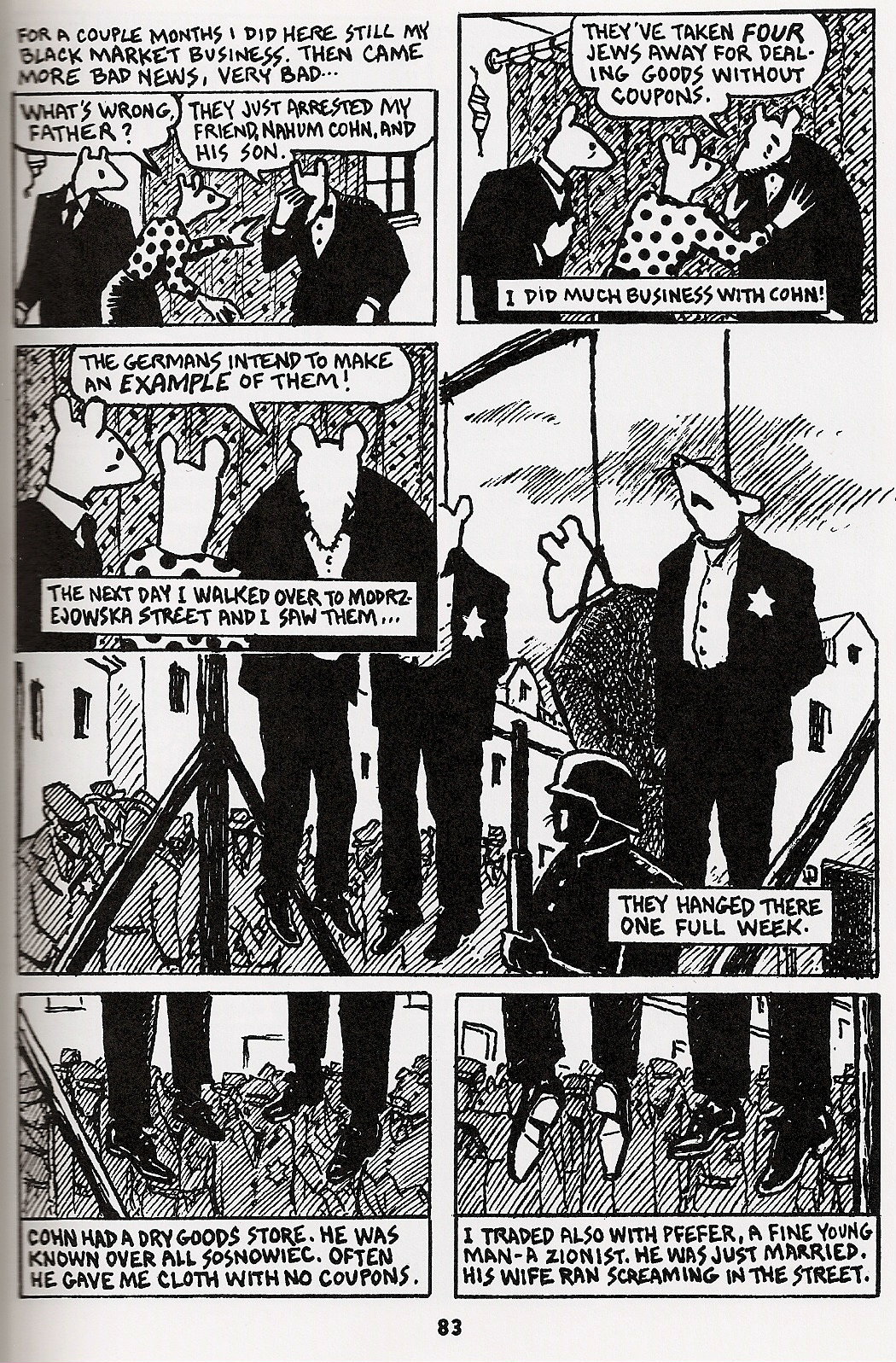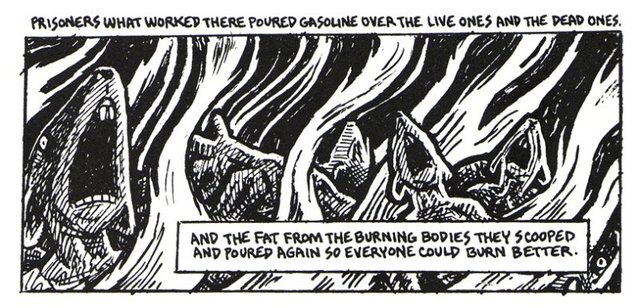Art Spiegelman's MAUS

There are two types of fear-one, is when you sit in a comfortable armchair and play silent hill or watch the horror movie, frightened by rustling and sharp sounds, increasing suspense and monsters-in general, thrilled. And there is a second type of fear that no one would ever want to feel. That one includes the Holocaust, to the history of which Art Spiegelman's "Maus" is dedicated.

Maus' narrative is conducted in two time intervals: the first, the pre-WWII years, the second - the 80th (present).
The hero of the story is Vladek Spiegelman, the father of the author of the book. He tells Art story about the war, the Holocaust, Auschwitz, and Art on this basis wants to create a comics that would show the events of those times through the eyes of an eyewitness. Art depicts his father as an annoying, boring, picky old man. In these scenes, there is humor, which allows a little discharge of the heavy atmosphere of the book. The thing is, he behaves so not simply out of whim or ill-raise. Under close examination, we find, that these patterns of behavior were formed in Auschwitz. He saves everything, never throws anything away, recounts his tablets every time, sometimes he feels sorry to light a match. On the one hand, this looks like a stereotypical caricature of a greedy Jew (even the author on the pages of the comics book talks about it), but on the other, getting deeper into the story, Vladak's fear becomes visible- in a concentration camp such things helped Vladek survive, and now memory does not let him to part even with the most unnecessary trash.

The book is impregnated with some strange black irony. And here it is time to talk about the most important thing. Characters are depicted not with human faces, but with animal heads. Nazis arecats, Jews - mice, Poles-pigs, Americans- dogs. And such an iconic approach is very appropriate to the essence of what is happening. The drawing is very careless, rough, black and white, but it perfectly highlights the atmosphere of events. I want to note the emotional side of the book- the author does not try to squeeze out a tear from the reader, as frequently happens with books on this topic. Instead, Art builds a chain of events, terrible events, full of despair, tension, a desire to survive. 
The characters are very "alive" - these are ordinary people trapped in a war. Looking at them, tracking their deeds, you understand that if you were in their shoes, you would most likely do the same.
Maus is one of the most vivid works on the Holocaust. This is a story of a man who passed through the hell of war and concentration camp. It should be noted that this is the only comic book in history, which was awarded with a Pulitzer Prize.

Loved this book. Highly recommend it.